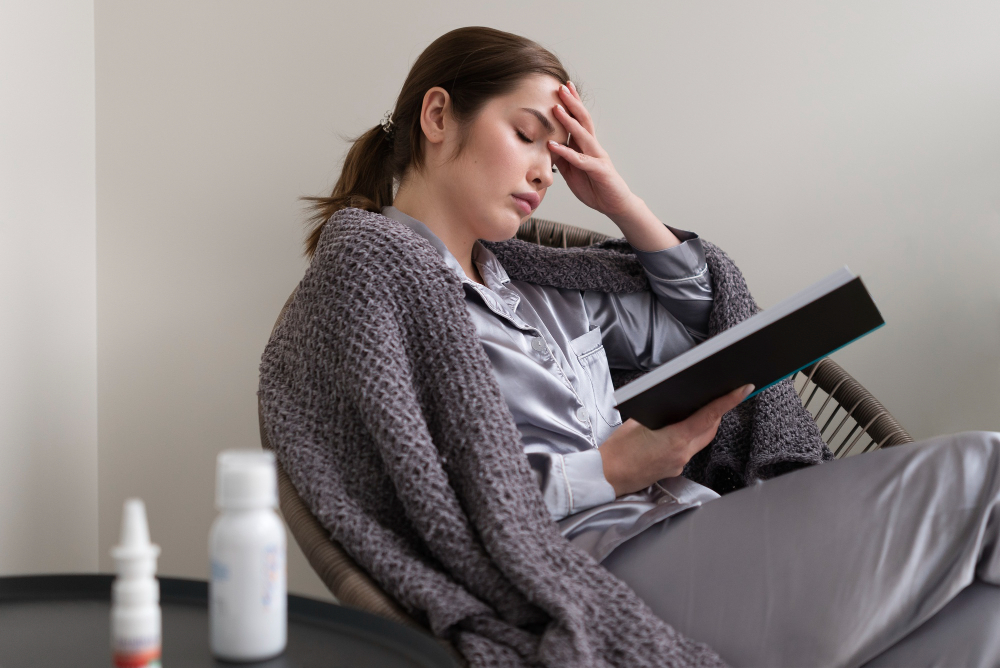It refers to situations in which the body cannot maintain hormonal balance. This condition occurs as a result of abnormalities in the production, release or function of hormones. hormonal disorder It is usually caused by various factors. It can affect a number of physiological processes such as metabolism, reproduction, mood and energy levels. It can include many disorders such as menstrual irregularity, thyroid problems, polycystic ovary syndrome. Diagnosis and treatment require analysis of levels of specific hormones and identification of causes.
What are the Causes of Hormonal Disorder?
 Some may be associated with genetic predisposition. For example, conditions such as hypothyroidism may be related to family history. High levels of stress can affect the balance of stress hormones such as cortisol. It may cause the situation to occur. Factors such as unbalanced diet, excessive exercise or excessive weight gain can lead to hormonal imbalances.
Some may be associated with genetic predisposition. For example, conditions such as hypothyroidism may be related to family history. High levels of stress can affect the balance of stress hormones such as cortisol. It may cause the situation to occur. Factors such as unbalanced diet, excessive exercise or excessive weight gain can lead to hormonal imbalances.
Factors such as chemicals, toxins, pesticides can have negative effects on the hormonal system. The aging process can cause hormonal changes. Natural aging processes such as menopause and andropause lead to significant changes in hormone levels. It may be caused by external interventions such as birth control methods or replacement therapy.
It can also affect existing imbalances. Thyroid hormones regulate the body's metabolism. It may occur if the thyroid gland secretes excessive or insufficient hormones. polycystic ovary syndrome, It is common in women. It is characterized by the formation of cysts in the ovaries and hormonal imbalances.
Some health conditions, such as diabetes, can affect hormonal regulations. It may cause the situation to occur. Besides these factors hormonal disorder It may occur as a result of complex interactions. It can usually be due to more than one reason. It may cause certain symptoms. Treatment often varies depending on the underlying cause. Therefore, it requires guidance from a gynecologist and obstetrician during the diagnosis and treatment process.
Hormonal Disorder Symptoms
In women, symptoms may include irregularities in the menstrual cycle, excessive bleeding, or no menstrual period. It can cause skin problems such as acne, oily skin, dry skin, or rashes. It may cause weight gain or weight loss. Especially if hormones that have an impact on metabolism are affected. It can cause a decrease in energy levels and overall fatigue. hormonal disorder It can affect sleep patterns and cause sleep problems. There may be symptoms of mood changes such as anxiety, depression, and irritability.
It may cause decreased sexual desire, loss of libido, or other sexual dysfunction. In conditions such as menopause, it can trigger hot flashes and excessive sweating. It can affect the digestive system, causing digestive problems such as constipation or diarrhea. Hormonal disorder symptoms It usually varies depending on the person's age, gender and health status. If any of these symptoms are noticed, it is important to consult an obstetrician. Diagnosis and treatment are usually made by a doctor or endocrinologist.
Hormonal Disorder Treatment Methods
 The most commonly used method of treatment is medication. There are hormone replacement therapy medications prescribed by endocrinologists. These drugs help restore hormonal balance. Adopting a healthy lifestyle, balanced diet and exercise support hormonal balance. In some cases, hormonal disorder These changes alone are sufficient for treatment.
The most commonly used method of treatment is medication. There are hormone replacement therapy medications prescribed by endocrinologists. These drugs help restore hormonal balance. Adopting a healthy lifestyle, balanced diet and exercise support hormonal balance. In some cases, hormonal disorder These changes alone are sufficient for treatment.
If it is caused by structural problems such as tumors or nodules, surgical intervention is required. In such cases, surgery can remove or correct the problematic tissue. Hormone replacement therapy may be applied. It is used to restore hormonal balance in post-menopausal women.
Hormones such as estrogen and progesterone are used to relieve symptoms and maintain bone health. Conditions such as polycystic ovary syndrome can be treated with birth control pills. These pills can help control and regulate hormonal balance. hormonal disorder, It is challenging for the person with emotional symptoms caused by the changes. Psychotherapy or support groups can help cope with these symptoms. Treatment options vary depending on the person's specific condition and the type and severity of the disorder. Therefore, it is important to consult a doctor to determine the most effective treatment method to combat this condition.






